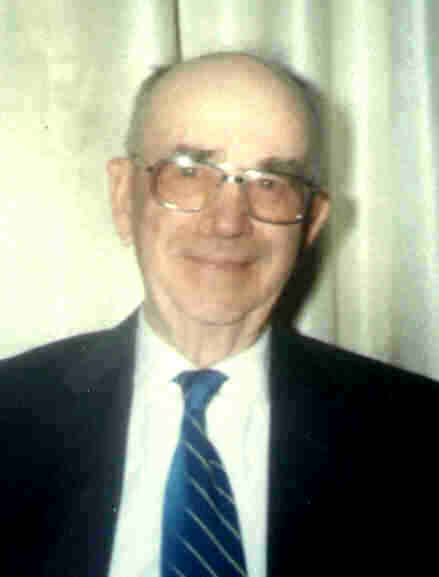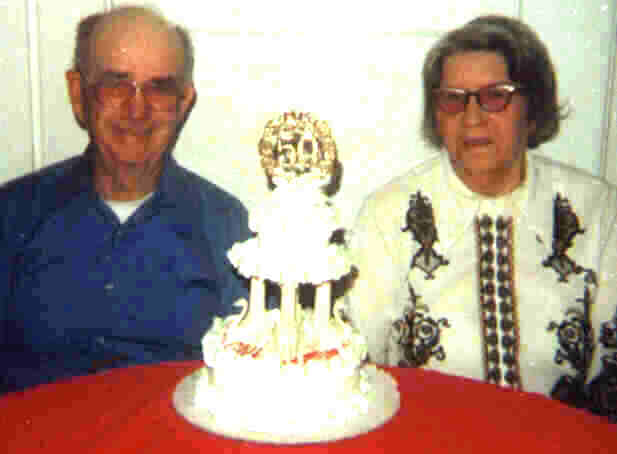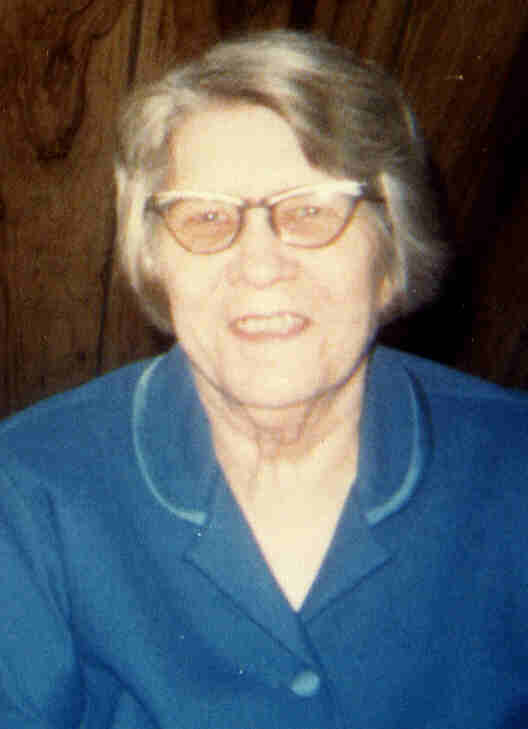 Clifford Eschol Johnson was born near Jolley, Iowa on March 22, 1904 to Anson and Elsie (Griswold) Johnson. He started school at the age of five, but took the first grade over. He said he went to school with Amelia Earhardt, as her father worked for the railroad, and the Earhardt family lived in Jolly for a time. A new school, the Jolley Consolidated School, was built with the first high school class graduating in 1921. Clifford graduated in 1923. There were four students in his class.
Clifford Eschol Johnson was born near Jolley, Iowa on March 22, 1904 to Anson and Elsie (Griswold) Johnson. He started school at the age of five, but took the first grade over. He said he went to school with Amelia Earhardt, as her father worked for the railroad, and the Earhardt family lived in Jolly for a time. A new school, the Jolley Consolidated School, was built with the first high school class graduating in 1921. Clifford graduated in 1923. There were four students in his class.
Some people named Donakers ran a grocery store in Jolly and nearly every family in that area was affected by typhoid fever. The townsfolk thought it came from the store’s meat storage. Donakers hired a dray, dumped the meat, and cleaned their cooler at night, thinking that no one would know, but everyone did. Clifford said, “Too bad they didn’t do it before the people died instead of after.” He had typhoid fever as a young man and lost most of his hair.
After high school, he stayed home the first year working as a school bus driver. The school bus consisted of a team of horses and a wagon. The bus route was about six miles long with twelve children, more or less, riding the bus. The bus was small and the families were very large, so it didn’t take too long to fill the bus. During that year, Clifford also worked the 100 acre farm for his father, while Anson did carpentry work.
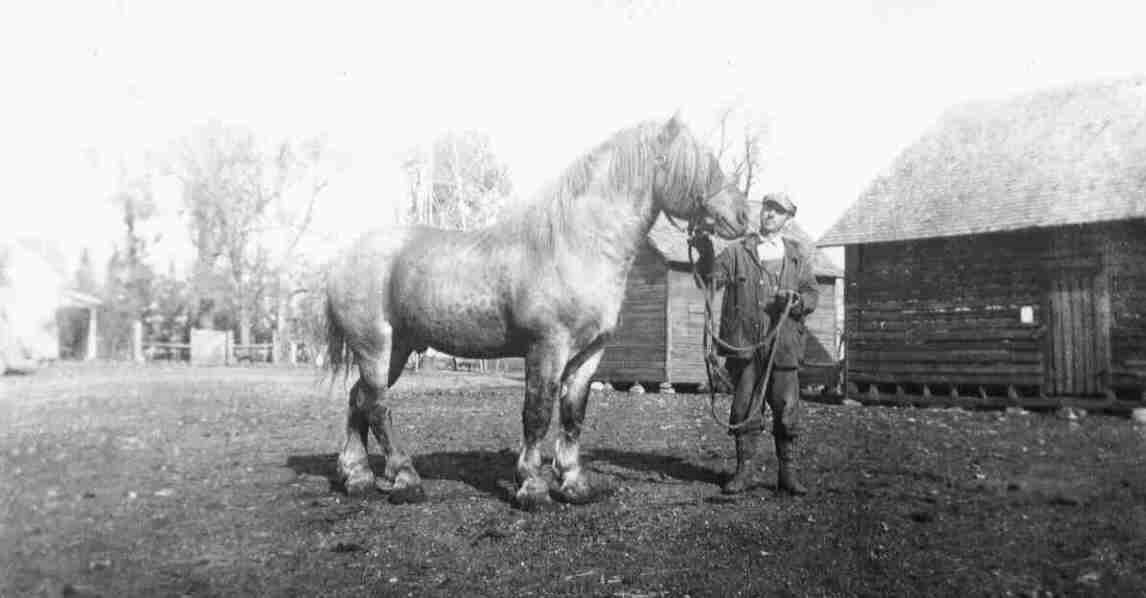
Being a young man and wanting to “see the world”, he and a friend went to work for a railroad, building track from Glendive, Montana to Circle, Montana. The pay was $1.50 per day. The room and board was $1.25 per day. Rainy weather limited work so much that they couldn’t work enough to pay their board, so they sought other gainful employment.
Soon they were working with threshing crews around Glendive, Montana until the weather turned cold. At that time, they came back to the Midwest by way of Minneapolis, Minnesota. They continued eastward and found employment at a lumber mill at Chippawa Falls, Wisconsin (which was on the Chippawa Indian Reservation.) During the first night at the bunk house, their blankets were stolen, so they nearly froze. After they got new blankets, they nailed them to the bunk, so they wouldn’t get stolen again. Clifford’s job was to take care of the roads. He and his friend were to fill in the holes in the road caused by blasting the stumps out. They cheated and put ice and snow in the holes, so they made sure they were out of there before spring and the ice melted. His base wages were $45.00 a month, but since he could drive a team, he got $5.00 a month more. The mill brought in other people who were paid $100.00 per month to drive the four-horse teams. He could drive the four-horse teams as could most any farmhand at that time, but the mill thought they should have “experts.” The logs were loaded with horses and hauled to the mill by horse-drawn wagons. While he was in Chippawa Falls, the government was in the process of moving the Indians out because a dam was backing water up near their camp. The Indians did not want to move until the water came up to their tents.
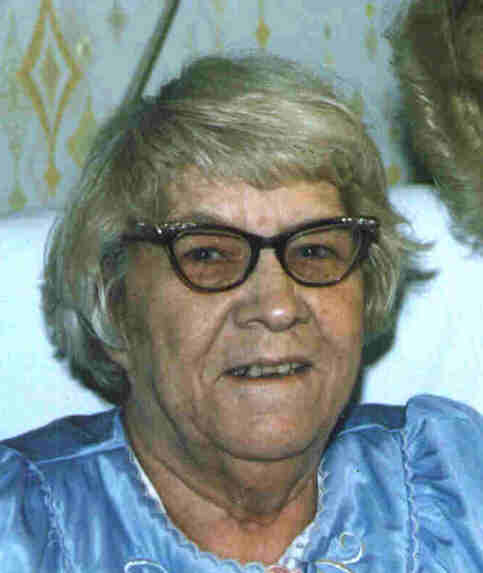
When she was a young child, she was afflicted with polio. It damaged her left leg severely. Mae would adjust her shoes by gluing pieces of leather to the sole in strategic spots, to help her keep her balance when she walked.
She told of her father, John Tannehill, having a still in their basement and having to bury the bottles in the cellar or along the crop rows to keep the bottles from exploding while they fermented.
Mae swore that she had seen Bonnie & Clyde driving the gravel roads near their farm when they were in the Lake City, Iowa & Rockwell City, Iowa areas.
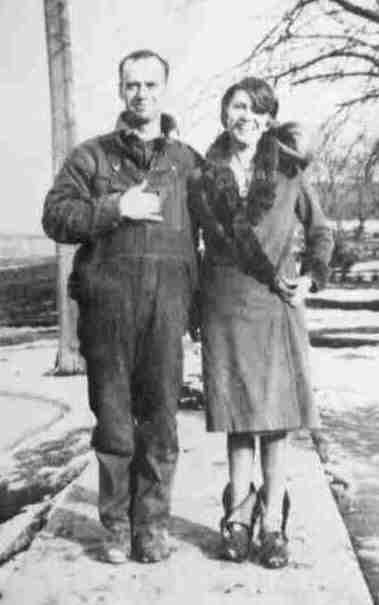
They farmed and worked with Clarence and Adah Ellis. Adah is Cliff’s sister. Mae and Clifford rented a house in the town of Jolley, Iowa for $15.00 per month. That was a lot of money during the depression, so part of the time, they stayed with Clarence and Adah. Their first child, Velma Darlene was born on January 6, 1931.
Clifford and Mae moved to a peat farm near Twin Lakes, Iowa where they farmed until 1937. Their second child, Verlyn Gene, was born on May 14, 1934. In 1934, Clifford helped harvest ice from Twin Lakes for Bill Buston. Social Security started in about the same year and the workmen were to get social security numbers. The men were uncooperative. A man came from Des Moines, IA to arrest their boss, Bill Buston, if he didn’t allow the men to get their social security numbers. On a very cold night, about 20 degrees below, the Des Moines man and Bill Buston came to Clifford’s door. He and Lee Stone, his brother-in-law, went ahead and got their numbers that night.
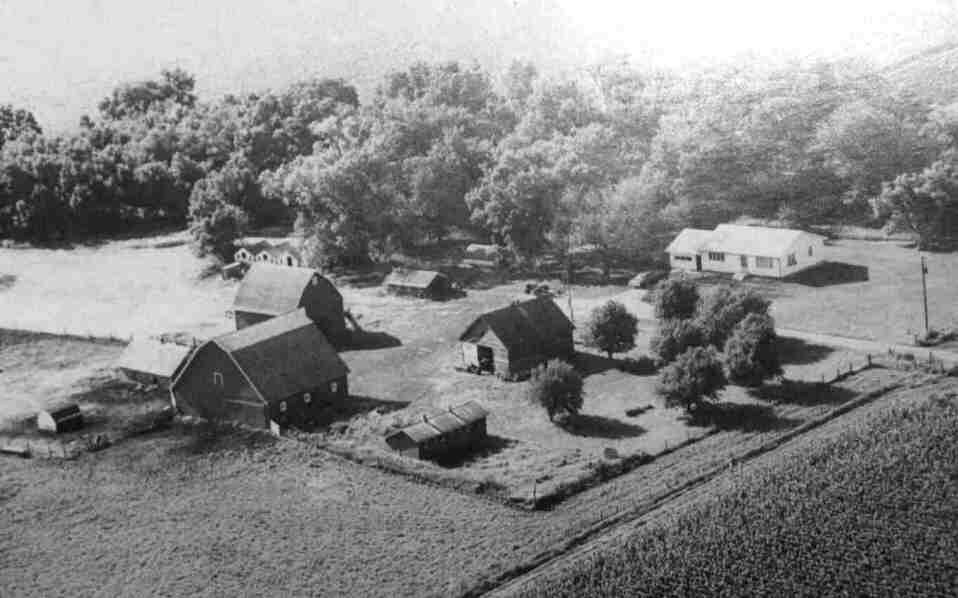
In 1978, they retired from farming and moved to Pocahontas, Iowa. Mae passed away on April 11, 1987. Her health had been failing for several years. Clifford remained in their home until a few months before he passed away on April 29, 1997. Both are interred at the Crown Hill Cemetery, Jolly, Iowa.
I have several hours recorded of Cliff telling stories about events that happened, but have yet to transcribe them. Since he passed away, I haven’t been able to bring myself to finish that project yet.
The above photos were taken as they celebrated their 50th wedding anniversary in 1979.
©2016, My Granny Rocks | Janette Thornton. All rights reserved.
